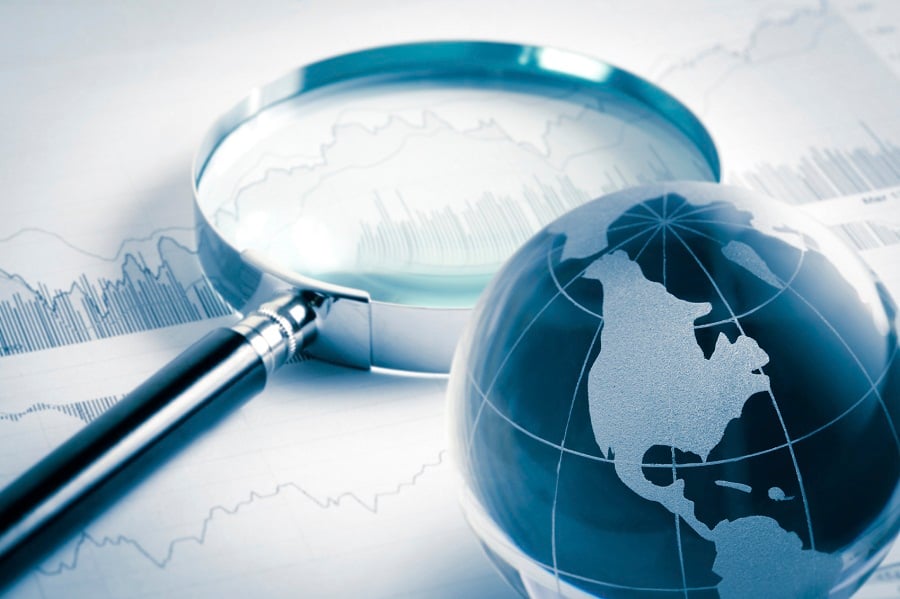In recent weeks, U.S. stock markets have moved up and down in response to issues that go well beyond the traditional direct drivers of economic growth and corporate earnings. These "known unknowns," to borrow a phrase from former Defense secretary Donald Rumsfeld, include the aftermath of the currency crisis in Turkey, the trade tariffs and sanctions skirmishes, the more uncertain outlook for the global economy and the exit from unconventional monetary policy.
The moves in U.S. asset prices, whether up or down, have often appeared exaggerated when assessed calmly in light of the longer-term influences of these factors. (The issue is different for other technically fragile asset classes such as emerging markets, or for directly impacted countries such as Turkey.)
As unbalanced portfolio reactions are the major risk for U.S. equity investors, here's an assessment of the big four known unknowns. This list of concerns, by order of importance for investors in U.S. assets (from high to low), is based on a combined assessment of both the probability of bad outcomes and their potential impact.
More uncertain global economy: For some time, advanced economies were relatively correlated in terms of growth performance. Coming out of the 2008 global financial crisis, a protracted period of frustrating "new normal" growth (unusually low and non-inclusive) was followed by promising signs of a synchronized pick-up. This has now given way to much greater divergence, with the U.S. notably outpacing other advanced economies. Accompanied by worries about China's growth prospects, there are interesting questions about how long this divergence can persist and how it will ultimately be reconciled.
It makes a huge difference to U.S. corporate earnings if the advanced countries' average growth rates end up converging to higher U.S. levels or if, instead, America's is pulled down. This is particularly true in a world of high debt and depleted policy ammunition to fight a serious economic downturn. And, in the journey to this resolution, exchange rates and interest rate differentials could be subject to considerable strains.
More:
Active money management is not going to disapper
Trade policy: The global trade system has been questioned by the Trump administration, which is frustrated by both the persistence of unfair practices and the lack of modernization of some key arrangements. The U.S. response has been to raise the ante by imposing tariffs and threatening to implement more on China, the European Union, Canada, Mexico and others.
These moves are all part of a general trend of more aggressive use of economic tools for political and geopolitical purposes. As long as the U.S. is willing to sustain some possible damage, it is destined to win the skirmishes. Realizing this, some trading partners (including the EU) have adopted a more conciliatory tone after the initial tit-for-tat responses. The net result is the following probabilities for potential outcomes: a 60% chance of negotiated tweaks that retain the current trading system but make it fairer; a 25% chance that the world slips into a full-blown trade war; and a 15% chance that this proves to be a highly favorable "Reagan Moment" for the international system.
This probability distribution, while generally reassuring, involves nevertheless a significant left tail. In other words, it is vulnerable to a policy mistake that would lead to recession, financial instability and greater geopolitical tensions.
More:
Solidify client relationships in volatile times by overcommunicating
Central banking policy normalization: The third uncertainty concerns the aftermath of the period of prolonged policy experimentation by systemically important central banks. Coming out of the global financial crisis, these institutions took correlated and, at times, coordinated action to apply unconventional measures to inject significant liquidity. This is no longer the case. Now, the Federal Reserve is well advanced in normalizing its stance and there is enough evidence to suggest that it will succeed in a "beautiful normalization" that will involve neither derailment of growth nor significant dislocations to asset prices.
But that doesn't mean there is no uncertainty. No one knows how the global economy and markets will respond when two other systemically important central banks — the Bank of Japan and the European Central Bank — move simultaneously to normalize policy. What we do know is that asset markets have benefited significantly from the liquidity injections, and a lot more than the real economy; that there are concerns about excessive risk-taking in some segments; and that not all European countries are underpinned as yet by sufficiently robust economies.
More:
Biggers isn't always better when it comes to alternative investments
Turkey: The final and least important risk is Turkey's currency crisis. Turkey's efforts to rewrite the rules of crisis management make the spillover effects of this emerging-market dislocation harder to predict. Until now, it has shunned the use of interest rate policy and International Monetary Fund help to support its domestic policy adjustments. As a result, there is a notable risk that the current phase of technical contagion will develop broader and more disruptive economic and financial dimensions.
Of course, Turkey is the most vulnerable to this dynamic. It is followed by the most fragile emerging countries (those with immediate and large funding needs, as well as other financial mismatches). Western Europe could also feel some vulnerability given Turkey's economic size and its trade links. But, as long as its labor market remains strong and business investment continues to pick up, the U.S. would be largely insulated economically (though there are important geopolitical issues connected to Turkey's NATO membership, its strategic location, and the like).
Mohamed A. El-Erian is a Bloomberg Opinion columnist. He is the chief economic adviser at Allianz SE, the parent company of Pimco, where he served as CEO and co-CIO. His books include "The Only Game in Town" and "When Markets Collide." Follow @elerianm on Twitter.







